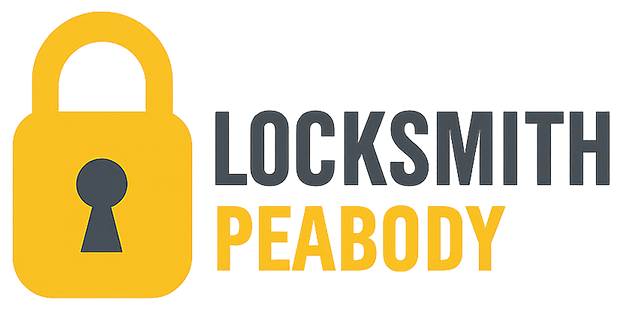Tips for Choosing the Best Locksmith
Doors, keys, fobs, and safes are quiet heroes until something goes wrong. When you finally need a locksmith, the choice you make determines how quickly life returns to normal and how well your locks work the next day. Use this practical guide to evaluate providers with confidence. You will learn what credentials matter, how to compare quotes, which red flags to avoid, and how to prepare so the visit finishes faster and cleaner.
Start with the right mindset
The best locksmith is not simply the cheapest or the one who can arrive first. You are hiring judgment, careful hands, and accountability. Look for a provider who communicates clearly, verifies authorization, protects finishes, and leaves your door or vehicle better than they found it. Good pros describe options, explain tradeoffs, and document what changed so you are never left guessing.
A quick checklist for fast screening
- Local presence with a working phone number and service area that includes your location.
- Clear services listed for residential, commercial, automotive, or safes as needed.
- Credentialed technicians who can explain training and typical brands they service.
- Insurance and willingness to provide proof on request.
- Upfront ranges for common jobs and confirmation after on site assessment.
- Authorization and ID checks as a standard part of the visit.
- Non destructive first approach with protective shields and measured force.
- Thorough testing before handoff. Deadbolt throw, latch alignment, keypad response, multiple starts for vehicles.
- Documentation of keys issued, codes changed, or parts replaced.
- Warranty on parts and labor with clear time frames.
- Respectful communication including realistic arrival windows and updates on approach.
- Clean workmanship and tidy cleanup at the end of the job.
Understand specialties and match them to your need
Residential
Lockouts, rekeying, new deadbolts, strike reinforcement, and smart lock setup. Ask about keyed alike plans, restricted keyways, and seasonal door alignment.
Commercial
Master systems, exit devices, storefront cylinders, electric strikes, and documentation. Look for structured key charts and knowledge of compliance basics.
Automotive
Non destructive entry, key origination, transponder and proximity programming, ignition repair. The right gear includes cutters, programmers, and battery support tools.
Safes
Dial and keypad diagnostics, careful opening techniques, combination changes, and relocker checks. Non destructive methods should be prioritized whenever practical.
Credentials and insurance in plain language
A trustworthy locksmith carries general liability insurance and follows local rules. They are comfortable explaining what they are trained to handle and what requires a specialist. If you ask for proof of insurance, a professional can supply it. For high security systems, ask about experience with restricted keyways or specific brands you own. The goal is not to quiz someone but to hear confident, practical answers that fit your situation.
Questions to ask before you book
- What are your typical ranges for my job type and what could increase cost
- Do you verify authorization and request ID on arrival
- What is your approach to non destructive entry and when do you escalate
- Which brands do you work with most often and do you carry parts on the vehicle
- How do you test the result and what is your warranty on parts and labor
- Can you rekey to a single key plan or set up a small master system if needed
How to compare quotes intelligently
A fair quote balances time, parts, and expertise. Be wary of rock bottom prices paired with vague language. Ask what is included, what could trigger additional cost, and how long the work typically takes. A good provider explains why a high security cylinder costs more than a basic one, or why a proximity fob requires extra programming steps compared to a standard transponder key. Comparing on clarity will serve you better than comparing on the smallest number alone.
Red flags that often predict a poor experience
- Only one price for all jobs without context or ranges.
- Unwillingness to verify ownership or authorization.
- Pressure to replace hardware immediately when service or rekey could solve it.
- No mention of testing, cleanup, or documentation at the end of the visit.
- Reluctance to explain methods or to show basic credentials when asked politely.
Non destructive first and why it matters
Competent locksmiths protect finishes and mechanisms. For homes, that means shields where tools touch, accurate tension, and thoughtful escalation. For vehicles, that means protecting weatherstripping and paint, keeping voltage stable during programming, and verifying central locking after entry. For safes, it means measured techniques and controlled work only when internal failure leaves no alternative. Non destructive first preserves value and keeps future service simple.
Reviews, references, and what to look for
Real reviews discuss communication, clarity, and the feel of the result. Look for mentions of punctuality, careful handling of trims and finishes, and doors that close gently with a confident turn. If the same technician is praised by name, that is a good sign of consistency. A single negative review is not the full story. Patterns matter more than one loud outlier.
Smart lock and keypad competence
Many calls involve electronics rather than metal. Ask if the technician carries fresh batteries, knows reset sequences for popular models, and can explain code hygiene that fits your household or staff. A pro can set admin and guest codes, enable auto lock timers, and show you how to replace batteries without losing settings. If you want devices that store codes locally, say so. If remote control is helpful, ask about bridges and reliable app behavior.
Master keying and key control for small properties
For rentals or small offices, a simple master plan saves time. Managers keep a master that opens all perimeter doors while individual keys operate only assigned entries. Ask how documentation will be handled and whether restricted keyways are an option. Restricted systems reduce unauthorized duplication and keep key control clean during turnover.
Warranty and aftercare
Good providers stand behind their work. Expect clear language around parts and labor. Aftercare can include a short care guide, a reminder about keypad batteries, or a follow up for door alignment if seasonal changes affect closing force. Ask how to get support if something feels off a week after the visit. Knowing the plan now prevents frustration later.
What to prepare before you call
- Exact location and any parking or gate information.
- Door count and whether you need keyed alike or keyed different groups.
- Brand names if visible or quick photos of the locks.
- Urgent factors such as pets, kids, weather, or business opening times.
- Decision maker contact so approvals are quick and the visit stays efficient.
- For vehicles, provide year, make, model, and whether you have any working keys or fobs.
Sample decision matrix you can adapt
| Factor | Provider A | Provider B | Notes |
|---|---|---|---|
| Service fit | Residential plus smart locks | Residential only | Need keypad support |
| Insurance & credentials | Provided quickly | Hesitant to share | Prefer A |
| Quote clarity | Range with conditions explained | Flat price, vague | Clarity wins |
| Non destructive policy | Explained in detail | Not addressed | Prefer A |
| Warranty | Parts and labor covered | Parts only | Prefer A |
Scenario based tips
Locked out at night
Confirm realistic arrival window, ID check, and non destructive methods. Ask for a rekey after entry if keys are missing and you are unsure who has copies.
New home move in
Request a single key plan across exterior doors, strike reinforcement, and keypad setup with admin and guest codes. Ask for discreet labels and a simple key chart.
Business turnover
Choose a provider comfortable with master systems, exit devices, and documented key custody. Confirm that door labels and cylinder IDs will be updated.
Car key lost
Ask about key origination from code, transponder or proximity programming, removing lost keys from memory, and testing multiple starts before handoff.
Communication signals that indicate quality
Notice how your call is handled. Do you receive a calm, step by step explanation. Are questions answered directly. Is there transparency about timing. Do you understand what will happen on arrival. Good communication is a reliable proxy for good field work. People who speak clearly tend to work clearly.
After the job is done
Walk through the work with the technician. Try the key yourself. Test the keypad. Watch the deadbolt throw fully and the door close without force. Confirm how many keys exist and where to store spares. Save the invoice and any notes about codes or parts in a safe place. A two minute review ensures everything feels right and prevents follow up surprises.
Your next steps today
- Save a trusted locksmith contact with a clear name and pin it as a favorite.
- Photograph your main lock brand and keypad model so you can share details quickly.
- Decide whether you want a single key plan or a master system for your property.
- Set a reminder to replace keypad batteries annually and review codes quarterly.
- Keep a spare key in a secure place or with a trusted person to reduce emergency calls.
Choosing the best locksmith is about fit, clarity, and care. Match the provider to your need, ask smart questions, expect non destructive methods, and insist on testing and documentation. With a little preparation and a willingness to listen for quality, you will end up with doors that lock smoothly, keys that feel crisp, and a contact you are confident to call again.

